Pre-conference workshops
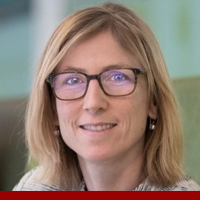
Workshop 1. WRITING ARTICLES FOR ENGLISH LANGUAGE JOURNALS
Susan Branje, Utrecht University, The Netherlands
The preconference workshop on Writing Articles for English Language Journals aims to strengthen writing skills to allow researchers to write more effective research articles. The workshop is aimed at early-career researchers who are planning to write articles for English language journals or who are currently writing articles. The workshop will include a presentation on general tips and tricks for successful writing, combined with examples of effective and less-effective writing and ample time for writing exercises to improve writing skills. As writing can best be learned through practicing, and practicing works best when using you own texts, participants are encouraged to bring a short extract of their own texts they have previously drafted or are currently working on for the course exercises. There will be ample opportunity for participants to ask questions and engage in discussion.
Maximum number of participants: 15
Susan Branje is Professor of Development and Socialization in Adolescence at the department of Youth and Family, Utrecht University, The Netherlands. She obtained her Ph.D. at the Department of Developmental Psychology, Radboud University Nijmegen in 2003. Her work focuses on understanding the developmental changes in adolescents’ personal characteristics and relationships with parents, siblings, friends, and romantic partners and the associations with adolescent psychosocial adjustment. She is also President of the European Association for Research in Adolescence and incoming Associate Editor of the Journal of Research on Adolescence.
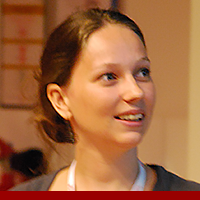
Workshop 2. Bayesian Statistics in Practice
Mariëlle Zondervan-Zwijnenburg, Utrecht University, The Netherlands
You’ve probably heard about Bayesian statistics. Maybe Bayesian statistics were introduced to you as the kind of statistics that cool scholars use, or even as the solution to all statistical problems. The first one is definitely true, the second, of course, depends.
In this workshop you’ll learn about the main ideas behind Bayesian statistics and how they compare to frequentist statistics. We will discuss what reasons you can have to choose Bayesian statistics, and how to do this in practice. Furthermore, we will consider common pitfalls, the evaluation, interpretation and reporting of results.
The workshop will cover both hypothesis testing (with Bayes factors) and Bayesian estimation (with informative priors). You will learn about different software and R packages and receive exercises that can be executed in several packages. Interactive elements will be integrated throughout the workshop.
This workshop is meant for researchers who want to learn about Bayesian statistics in general and how to apply it in practice. Most applications we discuss are longitudinal structural equation models taken from the field of developmental science. The only required prior knowledge concerns your own field of expertise and being able to install software on your computer.
Maximum number of participants: 20
Mariëlle Zondervan-Zwijnenburg is a post-doctoral researcher at the Department of Methodology and Statistics at Utrecht University. Mariëlle’s research interests are Bayesian evidence synthesis, longitudinal structural equation modeling and informative priors. Since Mariëlle also completed the Research Master Development and Socialization in Childhood and Adolescence (cum laude) and is embedded in the Consortium Individual Development, she frequently collaborates with developmental researchers and develops methods that enable social science researchers to make optimal use of their data.
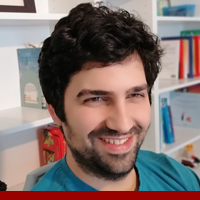
Workshop 3. Introduction to R
Tiago Ferreira, University of Porto, Portugal
R is an open-source programming language particularly suitable for statistical analysis. With increasing popularity among researchers in the field of social sciences, R offers a flexible programming environment for conducting virtually any type of statistical procedure.
This workshop offers an introduction to R and RStudio. We will focus on presenting the R basic syntax and way of functioning. The general goal is to give attendees the necessary skills to perform basic operations for data manipulation and management, data visualization, and simple descriptive and inferential statistical procedures. The workshop will have many opportunities to put these skills into practice. In addition to video and written tutorials, we will conduct three interactive 45m zoom sections of guided practice. During these sessions, the instructor and participants will work together to perform a set of tasks and solve practical exercises using R. Three blocks of contents are planned.
1st Block: Introduction to R and RStudio environments, R basic operators, objects, data structures, and built-in functions;
2nd Block: Creating, indexing, and manipulating data objects in R;
3rd Block: Defining and customizing graphs, computing descriptive and basic inference statistics using R.
The workshop is open up to 15 participants. No previous R knowledge is required. Basic statistical knowledge namely on summary measures, correlation, and regression is assumed. Participants should have installed in their laptops the latest version of R (https://www.r-project.org/) and RStudio (https://rstudio.com/products/rstudio/download/).
Tiago Ferreira recently completed his Ph.D. in Psychology at the University of Porto, Portugal. His research focuses on the contributions of family and school relationships to socioemotional development during early childhood. He has been acquiring advanced training in statistics and data analyses. His area of expertise includes psychometrics (e.g., measurement invariance and multitrait-multimethod analysis), and longitudinal data analysis.
Tiago has been involved as a researcher and statistical consultant in several research projects in the fields of child development, family studies, and early childhood education, contributing to publications in national and international peer-reviewed journals (https://www.researchgate.net/profile/Tiago_Ferreira5/research).
He has also been responsible for given R introduction workshops and advanced courses in multilevel and longitudinal data analysis at the University of Porto, Faculty of Psychology and Education Sciences.
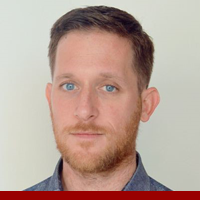
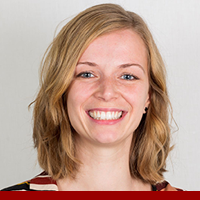
Workshop 4. ADVANCED STRUCTURAL EQUATION MODELLING (SEM)
Stefanos Mastrotheodoros & Susanne Schulz, Utrecht University
Content
Longitudinal data is often of utmost importance to developmental scientists. Analyzing longitudinal data not only allows us to better understand how young people develop, but also to better comprehend within-person processes controlling for between-person differences. In this way, longitudinal data can help distinguish developmental processes from individual differences. Furthermore, longitudinal data can inform us about individual differences in developmental processes. Therefore, applying techniques to analyze longitudinal data is a necessary skill for researchers studying development and developmental processes.
In this workshop, you will acquire hands-on knowledge on conducting advanced SEM analyses to study developmental order and processes controlling for individual differences (Random-Intercept Cross Lagged Panel Models), growth (Latent Growth Curve Models), and individual differences in developmental processes (Latent Class Growth Analysis/Growth Mixture Models). We will use both Mplus and R. In light of recent critical discourses, we will discuss between-person and within-person models, and how to choose the right analyses for your research questions. We will further provide a glimpse into the modelling of intense longitudinal data (e.g., DSEM).
Target audience
This workshop is aimed at researchers who want to extend their knowledge about SEM modelling techniques, and learn how to use these models in their own analyses. Participants should be familiar with basic SEM models (e.g., path analysis, growth models) and should have experience with running analyses in Mplus and/or R. To follow the course and practical exercises, at least one of these programs should be installed on your computer.
Maximum number of participants: 15
Workshop organizer
Stefanos Mastrotheodoros is a postdoctoral researcher at the department of Youth & Family at Utrecht University, the Netherlands. He has completed a PhD at the University of Athens, Greece, where he investigated the developmental interplay between personal identity, close relationships, and developmental tasks during adolescence. His second PhD, completed at Utrecht University, revolved around the development of parenting, parent-adolescent relationships, and family conflict, during adolescence. He is a Data Analyst with R, and has experience in applying longitudinal models to answer developmental questions.
Susanne Schulz is a PhD candidate at the Youth & Family department at Utrecht University. In her PhD project, she uses longitudinal data to examine mechanisms of the intergenerational transmission of psychopathology. Susanne completed the Research Master Child Development and Education (cum laude) at the University of Amsterdam and is part of the Consortium Individual Development. She is excited about novel statistical analyses, which she implements in her own work to answer complex questions about child and adolescent development.
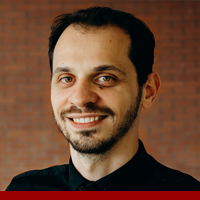
Workshop 5. UNDERSTANDING AND PRACTICING OPEN SCIENCE
Angelos Krypotos, KU Leuven & Utrecht University
Content
The last decade has seen an increase in discussions about open science. Despite its popularity, what is open science, and most importantly, how to practice it often seems challenging, especially for new researchers. Goals of this workshop is to provide the theoretical background and demonstrate how to practice open science in psychology. The workshop has the following structure. First, we will talk about the different definitions of open science. Then, we will define preregistration and how to preregister different types of studies. This will include the presentation of the different preregistration templates for the analyses of both primary as well as preexisting data sets. In the third part of the workshop, we will talk about reproducible data analyses, and how to make research data publicly available. For the different parts of the workshop we will use hands-on examples using longitudinal data. By the end of the workshop, you should be able to know what open science is, how to preregister a study, and how to make your data and research material available online.
Maximum number of participants: 15
Prerequisites
Prior to the beginning of the workshop, please download and install the following software:
-
R (https://cran.r-project.org),
- Rstudio (https://rstudio.com/products/rstudio/#Desktop),
- Git (https://git-scm.com/downloads).
The workshop does not assume familiarity with this software. In addition, please make a free account at https://osf.io.
Website
All materials will be made available at: https://github.com/AngelosPsy/Open-Science-Workshop
Workshop organizer
Angelos Krypotos is a post-doctoral researcher at KU Leuven and Utrecht University. His main research interests are avoidance learning, fear, pain, anxiety disorders, and computational modeling. Angelos has a PhD from the University of Amsterdam on Clinical Psychology. He is currently funded by an FWO Senior Post-Doctoral grant and by an NWO replication grant.
To register use the ONLINE SUBMISSION AND REGISTRATION SYSTEM.


